Western viewers — about Soviet and Russian war films
Categories: Cinema
By Pictolic https://pictolic.com/article/western-viewers-about-soviet-and-russian-war-films.htmlIn Russia, it is customary (at least until recently) to share their impressions of films and give them ratings on the "Kinopoisk". Western viewers do the same on the Internet Movie Database (IMDb). We will not comment on their feedback. Just leave it here.
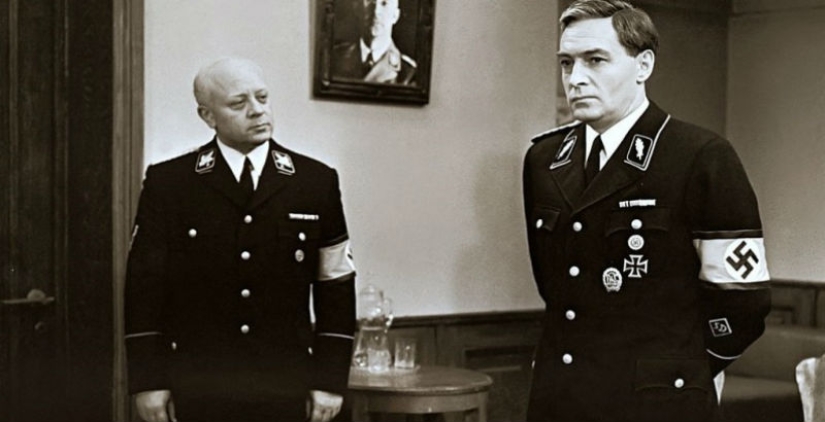

1. "Cranes are flying", 1957
Rating on IMDb: 8.2
"If you think you've already seen good camerawork, then this picture will amaze you. For a moment, the film was shot in 1957, but technically in the West we saw this much later, maybe 20 years later. Emotions fluctuate throughout the viewing, but in the end you get absolute pleasure from the masterpiece. Russian directors have something in common: very low budgets, good actors and the tangible pleasure they get from creating art. They can create more great films than the entire Western world put together. I'm not a big fan of Russia and I hate everything related to communism, but cinema in this part of the world evokes emotions that are difficult to describe."
User: VDG, Canada.
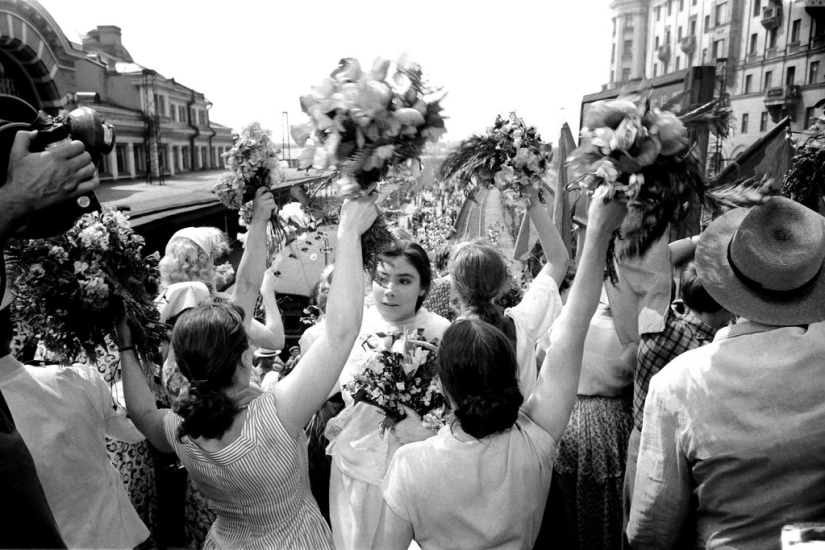
2. "They fought for the Motherland", 1975
Rating on IMDb: 8.2
"While watching it, I got the feeling that there was a whole world at war. Those soldiers somewhere in Russia were just a small part of a big world conflict. Many complain about acting in Russian cinema. This does not apply to "They fought for the Motherland". Everything is very natural there. The pain seems real, you can see the sweat. I can't imagine other actors in the same place. Sergey Bondarchuk also stars in the film and proves that he can not only create a movie, but also play in it."
User: D_VD_B, Netherlands.
"In Bondarchuk's film about the Second World War, it is worth noting the excellent plot (as always) and the polished pyrotechnic component. In two key battle scenes there are a lot of cool explosions and even a mock-up of the German "Panzer", but little drama and realism. German soldiers don't seem motivated. The first battle is very disappointing in this sense — when German tanks easily explode from a single shot of Soviet artillery, and the Germans themselves quickly retreat. At the same time, there are no losses among Russian freedom fighters.
In addition, one of the cameras used in the battles shoots through one of the most stained lenses that I have ever seen in big-budget films. This is very distracting and spoils the impression. What happened there anyway?"
User: MICHAEL A. MARTINEZ, USA.
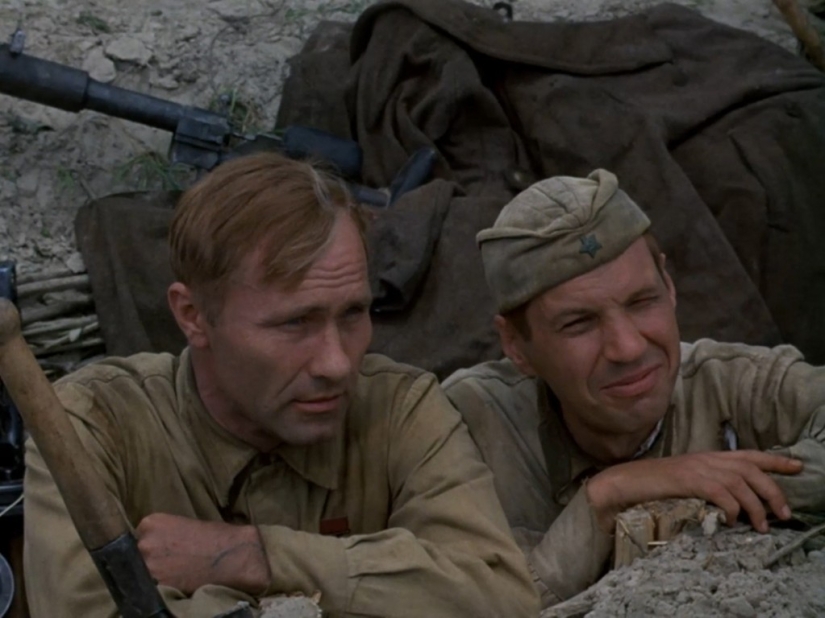
3. "Go and see", 1985
Rating on IMDb: 8.3
"The best and most realistic war movie I've ever seen, and probably the best movie I've ever seen. It turns out that 99% of the time I spent watching movies before was wasted. Few things have affected me that much. No special special effects, low budget, no heroes and their exploits. I am sure that the director captured the real war — unlike Spielberg and Coppola, he caught the Second World War and the terrifying siege of Stalingrad, besides he spent many months studying the massacres in Belarus, one of which he describes in the film. I find this picture depressing and devastating, but I really want to see it again."
User: SELLERY, London.
"I first saw this movie a couple of years ago. I didn't know what to think then. The soundtrack on the DVD was a bit heavy, and the acting was weird. Nevertheless, the film had such an impact on me that many others did not — I realized this over time. He's really puzzling. One night I was reviewing Errol Morris' latest documentary, The Fog of War, and found myself thinking only about "Go and See." I decided I needed to review it immediately. It was after midnight when I ran to rent it and then watched it three times in a week. The film stuck to me; it bothered me because it's a masterpiece.
Of course, "Go and See" was shot not without the influence of Soviet propaganda, but you don't think about it, because the film is so well made that the spectacle absorbs and drives you crazy. It's terrible to see how cruel people can be in war."
User: MACAINDRAIS, Canada.
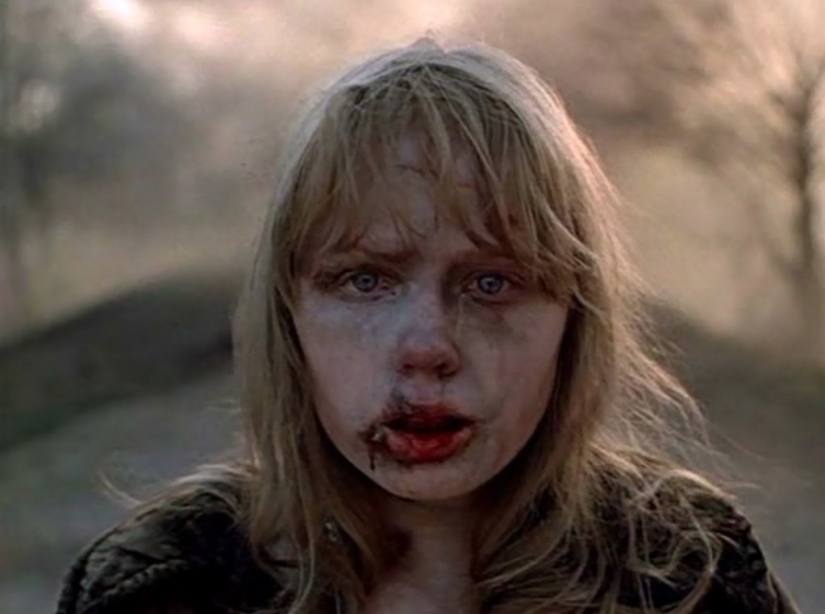
4. "Seventeen moments of spring", 1973
Rating on IMDb: 9.1
"A fantastic work — very fascinating, with excellent acting and directing, subtle dialogues. A good example of how a miniseries format can adapt a novel-scale story to the screen. It is easy to understand why the series is still considered canonical in Russia.
Technically, this is propaganda: the series was specially commissioned by the Soviet government to attract the attention of young people to the scouts. Apparently, attracted. But in fact, "Seventeen Moments" works in exactly the opposite direction. Instead of making concepts black and white, the series complicates everything - it focuses on the difficult decisions of the characters and breathes more humanity into the Germans than the one they possessed."
User: HTE-TRASME, USA.
"Seventeen Moments of Spring" is a Soviet TV series based on the novel of the same name by Julian Semenov. He immediately became popular in the Soviet Union, during the first show the streets of the cities were empty. It attracted a larger audience than hockey matches and crime reports. Leonid Brezhnev became a devoted fan of the series, and Stirlitz became the Soviet James Bond."
User: NICKDEWHURST, United Kingdom.
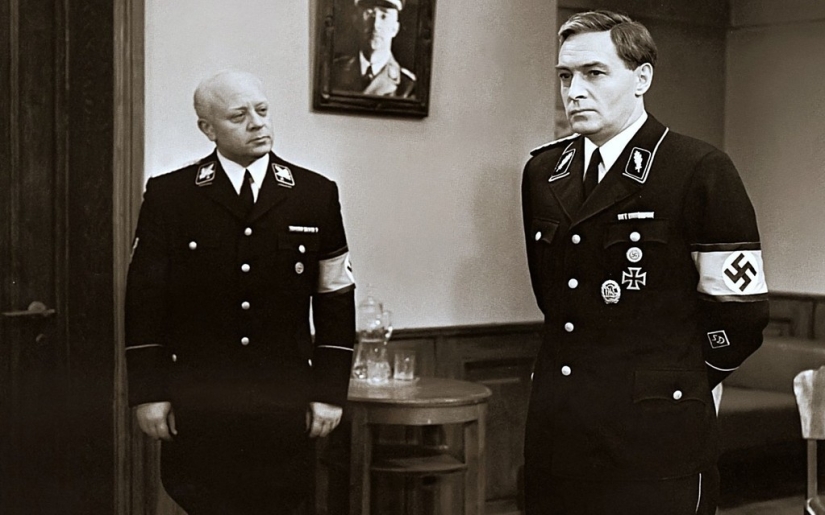
5. "Stalingrad", 2013
Rating on IMDb: 5.6
"I had high expectations, because the Russians made some good war paintings: "White Tiger", "Brest Fortress", "9th company". Bold, realistic, well shot, well played. Unfortunately, Stalingrad is a different case. The actors play fake, the plot is shitty, everything is said so head-on, as if you are watching Nazi or Soviet propaganda of the 30s (or American propaganda of the 40s - also disgusting). One word about this film: propaganda. The Brest Fortress was also a propaganda film, but still a good one."
User: MIRCEAVALCEA, Romania.
"Why is almost every scene in this movie slow-motion? This technique alone strains so much that, no matter what they do on the screen, the situation cannot be saved. Slow motion is usually used to emphasize key scenes, rather than fill up the whole movie with them.
The script and dialogues are absolutely disgusting. Who is talking with these propaganda words at all? Besides, the characters are revealed so badly that I didn't even remember their names. Some pathetic caricatures without a hint of anything human, performing actions beyond the bounds of logic. Was the Russian doctor really telling the story of the bloodiest battle in history to some group of German girls under the rubble? I think she would only upset them."
User: LORNLOXOR, Finland.
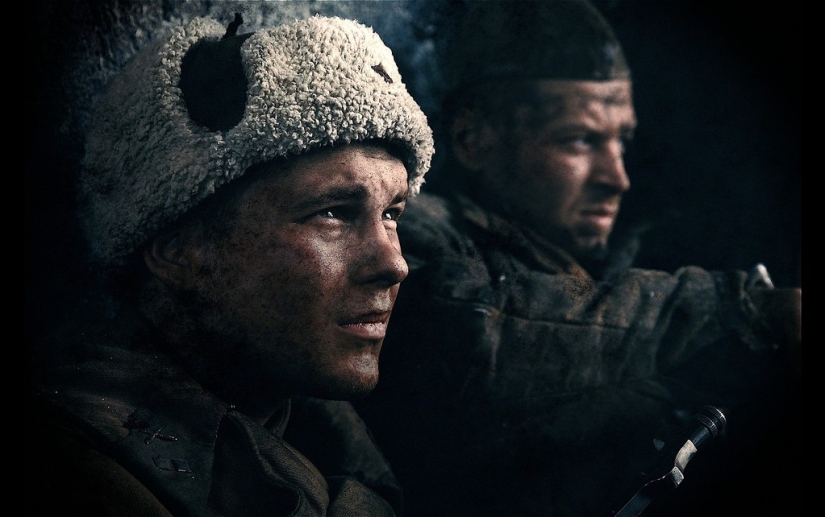
6. "The Battle for Sevastopol", 2015
Rating on IMDb: 7.4
"The plot and the actions of the characters are explained as if the creators were afraid that if they did something smarter, the audience would not understand anything. The main character is not attractive, her background and the reasons for such secrecy and sullenness are not disclosed at all. Because of the unsympathetic main character, it is impossible to get into the film. Sniper scenes are very weak, especially when the heroine makes perfect shots from a wobbly rifle — it's just ridiculous. The death scenes look as if the actors came from provincial theaters and are trying to portray death as dramatically as possible."
User: JOHN RODDICK, USA.
Keywords: Audience | Review | Movie
Post News ArticleRecent articles

It's high time to admit that this whole hipster idea has gone too far. The concept has become so popular that even restaurants have ...

There is a perception that people only use 10% of their brain potential. But the heroes of our review, apparently, found a way to ...
Related articles

Horror is a genre of cinema that has become a springboard into the big cinema of many venerable Hollywood actors. Laurence ...

In November 69 BC, she was born Cleopatra, the last Queen of Egypt from the Macedonian dynasty of the Ptolemies. Cleopatra, perhaps ...

What better way to warm up in the winter time than mulled wine, a warm hug and a hot movie? Some Hollywood blockbusters over the ...

New Year's is a time to surprise and delight loved ones not only with gifts but also with a unique presentation of the holiday ...